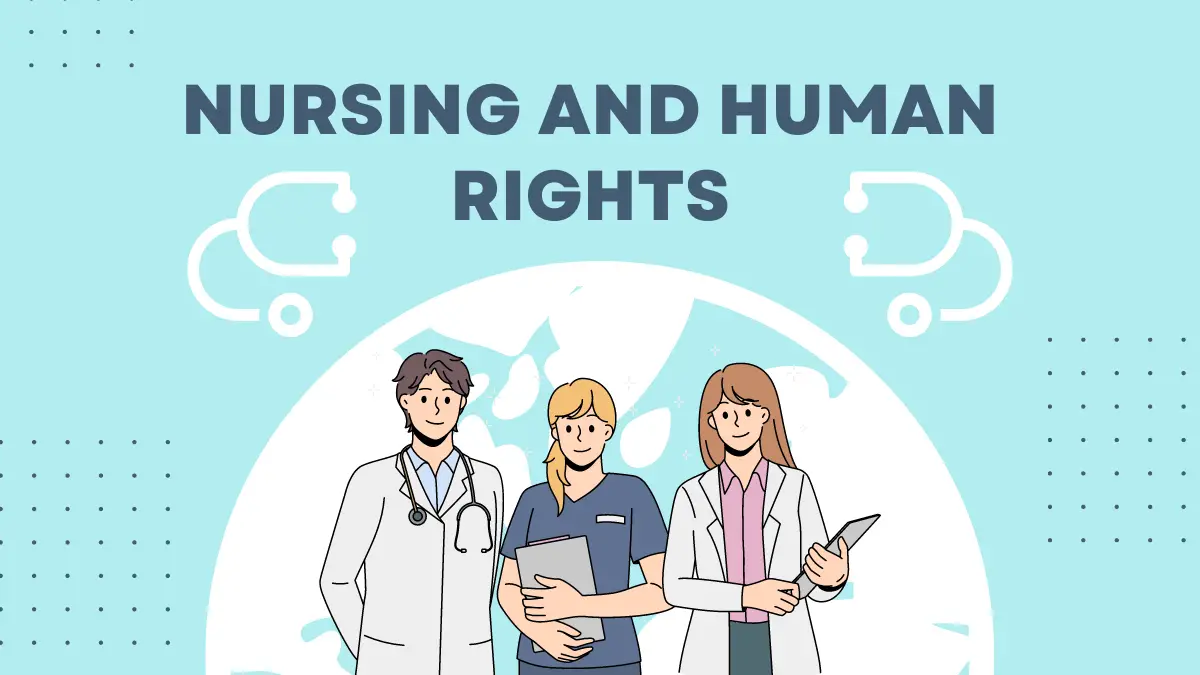Nursing in conflict zones presents a unique set of challenges where healthcare professionals navigate complex ethical and moral dilemmas while providing care. This article delves into the intersection of nursing and human rights, exploring the critical role nurses play in conflict-affected areas, the challenges they face, and the ethical considerations that guide their practice.
The Vital Role of Nurses in Conflict Zones
Nurses as Frontline Providers
In conflict zones, nurses often serve as frontline healthcare providers, offering essential medical care to those affected by violence, displacement, and trauma. They work tirelessly in challenging conditions, often with limited resources, to address the immediate health needs of populations caught in the crossfire.
Nursing as Advocacy
Beyond providing direct patient care, nurses in conflict zones also serve as advocates for human rights. They bear witness to atrocities and work to ensure that all individuals, regardless of their circumstances, receive dignified and equitable care. This advocacy extends to advocating for the protection of healthcare facilities and personnel under international humanitarian law.
Table: Healthcare Resources in Conflict Zones
| Resource | Availability |
|---|---|
| Medical Supplies | Limited |
| Personnel | Insufficient |
| Equipment | Scarce |
| Facilities | Overwhelmed |
Challenges Faced by Nurses in Conflict Zones
Security Risks
One of the most pressing challenges faced by nurses in conflict zones is the constant threat to their safety. Healthcare facilities are often targeted during times of conflict, exposing nurses to physical harm and psychological trauma. Despite these risks, nurses remain steadfast in their commitment to caring for those in need.
Resource Constraints
Conflict zones are characterized by a lack of resources, including medical supplies, equipment, and trained personnel. Nurses must navigate these constraints creatively, finding innovative solutions to deliver quality care in resource-limited settings. This often requires improvisation and adaptability in the face of adversity.
Ethical Dilemmas
Nurses in conflict zones are frequently confronted with difficult ethical dilemmas, such as triaging patients with limited resources, maintaining neutrality in politically charged environments, and respecting the autonomy of patients amidst cultural and religious sensitivities. Negotiating these dilemmas requires a nuanced understanding of ethical principles and a commitment to upholding human rights.
Ethical Considerations in Nursing Practice
Principle of Nonmaleficence
The principle of nonmaleficence, or the obligation to do no harm, is central to nursing practice in conflict zones. Nurses must prioritize the safety and well-being of their patients, even in the face of significant risks to their own safety. This may involve advocating for the protection of healthcare facilities, implementing security measures, and providing care in a manner that minimizes harm.
Principle of Justice
The principle of justice requires nurses to allocate resources fairly and equitably, ensuring that all individuals have access to the care they need. In conflict zones, where resources are scarce and needs are great, nurses must make difficult decisions about resource allocation, balancing competing interests and priorities to maximize the overall benefit to patients.
Context:
The nurse is deployed to a conflict zone where access to healthcare is severely limited due to ongoing violence and displacement. The field hospital where she works is understaffed and underequipped, with a constant influx of patients seeking urgent medical attention.
Challenges:
The nurse faces numerous challenges in providing care, including shortages of essential medical supplies, overcrowded conditions, and security threats. Despite these obstacles, she remains committed to her patients, working tirelessly to provide compassionate and competent care amidst adversity.
Ethical Dilemmas:
Throughout her deployment, the nurse grapples with ethical dilemmas, such as prioritizing patients for life-saving treatment, maintaining neutrality in a politically charged environment, and ensuring patient confidentiality in a context where privacy is often compromised. She relies on her training, experience, and moral compass to navigate these dilemmas with integrity and compassion.
Conclusion
Nursing in conflict zones is a testament to the resilience, compassion, and bravery of healthcare professionals who dedicate themselves to caring for those in need, even in the most challenging of circumstances. By upholding the principles of human rights, ethics, and professionalism, nurses play a vital role in alleviating suffering and promoting healing in the midst of conflict.


